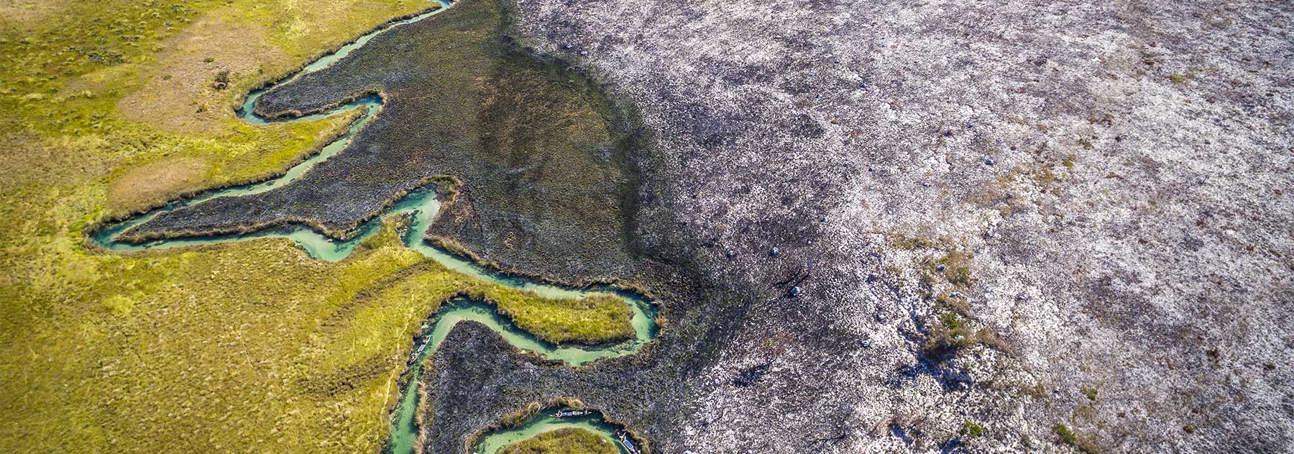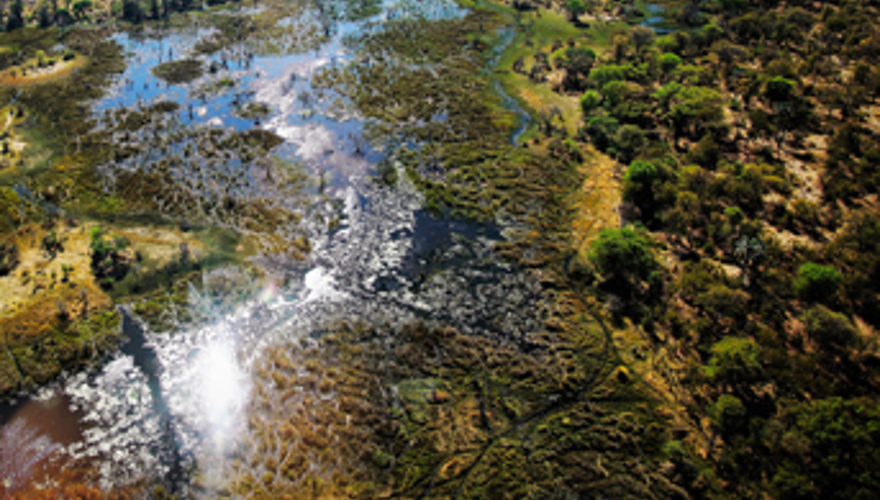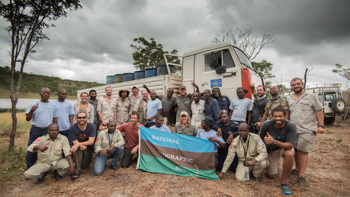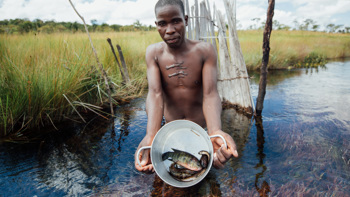It has been widely acknowledged that unchecked environmental degradation is likely to be a driver of future wars and conflict. Less well understood is the extent to which past and current conflicts are themselves contributing to the destruction of ecosystems and acting as a serious brake to conservation work.
One of the best illustrations of this link is to be found in the far southeast of Angola. A sparsely populated wilderness, with the capacity to be one of the planet's great wilderness areas, southeastern Angola is also the home to the headwaters that feed the Okavango Delta – home to 50 per cent of Africa's elephants.
Angola has some of the world's most important remaining wilderness, including the headwaters for the unique Okavango Delta, part of the five-country Kavango-Zambezi Trans Frontier Conservation Area (KAZA). But the presence of landmines makes large areas a lethal habitat for both animals and people. In June 2019, Prince Harry pledged his support to HALO's ground-breaking project to clear the landmines and protect the Okavango headwaters so that wildlife can return.
The Okavango Delta
Rising in the southeast of Angola, the headwaters flow down to feed the World Heritage site of the Okavango Delta. It is the main source of water for a million people and one of Africa's richest places for biodiversity.
In 2015, National Geographic launched the Okavango Wilderness Project, recognising the urgent need to protect the river basin for future generations. But to reach the headwaters meant crossing through the minefields of southeast Angola.
HALO was able to step in and provide safe passage, opening up the region to scientific exploration for the very first time.
Let life return
The presence of landmines, a legacy of Angola's civil war, makes it almost impossible to apply the conservation measures needed to protect this vital resource. Poaching and illegal logging are rife.
By clearing the landmines, HALO can lay the foundation for life, agriculture and eco-tourism to return and thrive, bringing many benefits to over half a million people in Cuando Cubango province alone.
The KAZA is home to over 50 per cent of the world's elephant population, but currently Angola is the Achilles heel of this precious habitat. Once the land is safe and conservation measures can be introduced, there is potential for a wildlife corridor to be opened up so the elephants can return.
In the short term, landmine clearance has the potential to be a significant employer in a region that currently offers few stable jobs. Following that, unrestricted access and increased safety will generate further economic opportunities, such as eco-tourism, in what are currently no-go areas.
Since 2020, over 1,000 Angolan men and women have worked to clear 125 minefields across the Mavinga and Luengue-Luiana national parks thanks to funding from the Government of Angola. They have made safe 9,528,208 sqm of land.
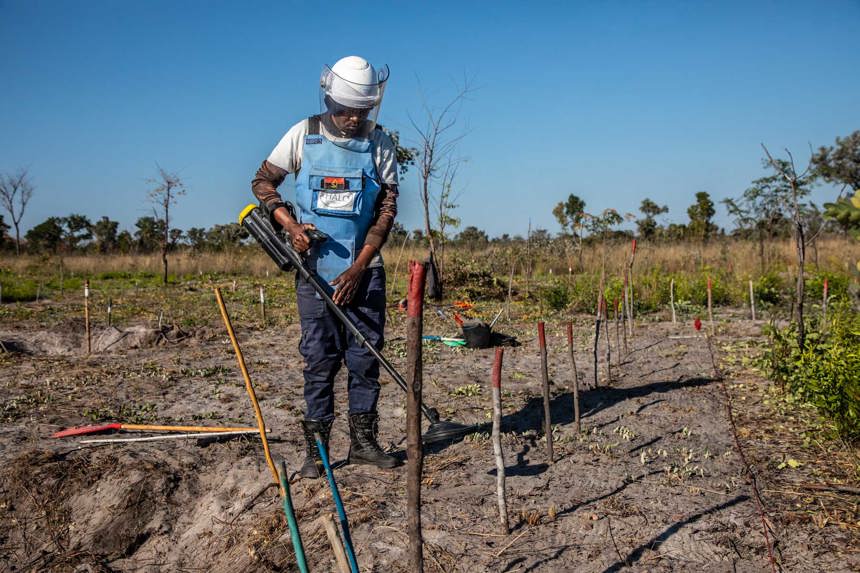
Paula Coelho, Minister for the Environment

